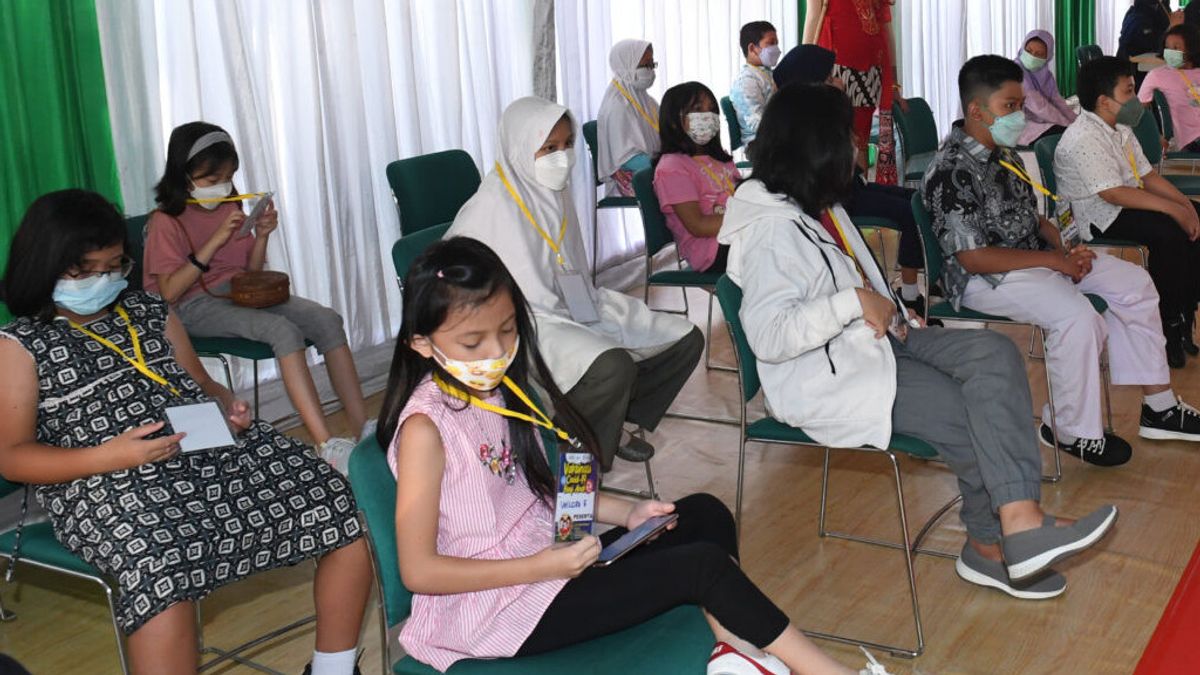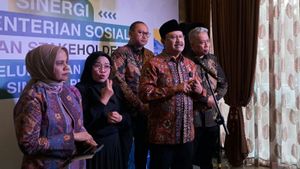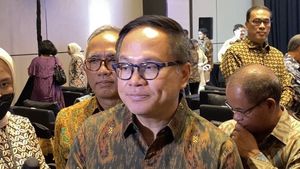Coordinating Minister for Maritime Affairs and Investment Luhut Binsar Pandjaitan reminded that COVID-19 vaccination should not stop, even though PPKM has been officially revoked.
The Java-Bali PPKM coordinator also ensured the availability of medicines and vitamins during the pandemic transition to endemic.
"I ask that vaccinations do not stop and need to be encouraged. Health facilities must still provide medicines and vitamins during the transition period. Please also regularly check the availability of oxygen cylinders," said Coordinating Minister Luhut when giving directions at the online PPKM Revocation Coordination Meeting, as stated in an official statement in Jakarta, Monday, January 2.
Luhut said, the public health emergency status and the national COVID-19 disaster are still valid considering this condition is global. The government has also drawn up a strategy so that there will be no spike in cases if a new variant appears.
Currently, there are 17 Whole Genom Sequencing (WGS) laboratory networks that can dig up information on how to handle these variants.
The government will also measure the resilience of the community every six months and prepare a booklet to assist the community in acting if there are new cases.
This policy was taken after considering controlled COVID-19 conditions, high immunity rates (95.8 percent), better health capacity readiness, and fast economic recovery.
The success of controlling the COVID-19 pandemic, he continued, is the result of integrated policies between various elements, ranging from the central government, local governments, TNI, Polri, health workers, academics, the community, and other parties, and originating from work based on data, science, and using technology.
"This success should be imitated and applied in other development policies," said Coordinating Minister Luhut.
In the future, he continued, a committee will be created to reward districts/cities with the best health facilities. The five criteria that have been determined include vaccination rates, testing and tracing rates, the level of use of the PeduliLindung application, the provision of health services, and other indicators will be compiled later.
"You are all great people. I'm from the bottom of my heart to say thank you. Sorry if I was too harsh in taking this position, but all I did was to reduce the number of victims in the COVID-19 case," he said.
Also follow VOI in Google News.
Meanwhile, Minister of Health (Menkes) Budi Gunadi Sadikin reminded the public not to be carried away by euphoria with the repeal of the PPKM policy.
The revocation of PPKM, he continued, is a government program from the entire pandemic transition strategy to endemic. In this process, it must be ensured that the government will gradually reduce intervention and increase community participation.
Once it becomes endemic, people have a big responsibility to take care of themselves and the surrounding environment.
"We recommend that people continue to apply health protocols. Limit activities in crowds, continue to wear masks, wash hands regularly, re-vaccination every six months, and so on," he said.
Secretary of the Coordinating Ministry for Economic Affairs Susiwijono Moegiarso said that actually the relaxation of PPKM had been carried out for a long time without causing a spike. The recovery of Indonesia's condition from the pandemic is also reflected in the economy, which in the third quarter of 2022 recorded a growth of 5.72 percent (year on year).
"Based on the data we have obtained from the leading indicators of the real and external sectors, the public is also optimistic about the trend in the next six months," said Susiwijono.
Luhut's request is actually inversely proportional to the conditions on the ground. Luhut, who asked for vaccination to continue to be intensified, may not know about the availability of vaccines, especially for children.
Head of the Communication and Public Service Bureau of the Ministry of Health (Kemenkes) Siti Nadia Tarmizi admitted that there was an empty stock of COVID-19 vaccines for vaccinating children aged 6-11 years in Indonesia.
Nadia admitted that the stock of Sinovac vaccines designated as vaccines for children aged 6-11 years had run out since a few months ago. Now, the government is still waiting for a new vaccine produced by PT Bio Farma to continue vaccinating children 6-11 years old.
"We are still waiting for domestic production to be used immediately," said Nadia.
Currently, the Food and Drug Supervisory Agency (BPOM) has granted permission for the COVID-19 vaccine for children 6 months to 11 years old using Pfizer. Pfizer's stock in Indonesia is also still declared sufficient.
However, the Ministry of Health has not issued a decree to local governments to use vaccines other than the Sinovac type to children 6-11 years old.
"We are still waiting for recommendations from WHO and studies from ITAGI (Indonesian Technical Advisory Group on Immunization) and IDAI (Indonesian Pediatrician Association) to use Pfizer at the age of over 6 years," said Nadia.
The English, Chinese, Japanese, Arabic, and French versions are automatically generated by the AI. So there may still be inaccuracies in translating, please always see Indonesian as our main language. (system supported by DigitalSiber.id)












